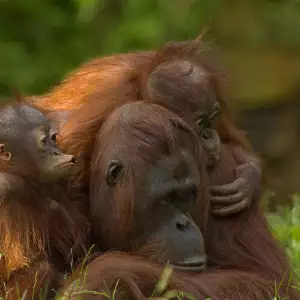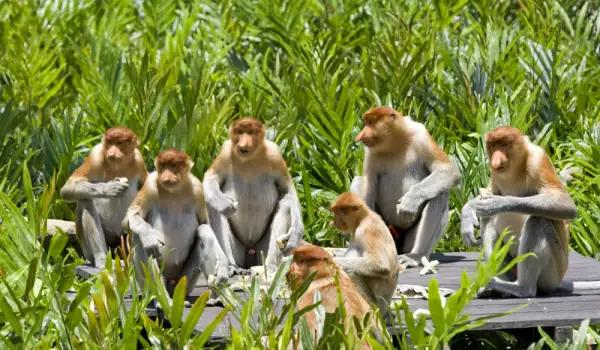It turns out that even in monkeys it's easier for individuals to get ahead if they are helped by a mother or sister with authority in the tribe. While some need to fight for their place, others inherit it from their mother.
A unique study has shown that those monkeys, who have an authoritative relative in high places in the tribe, reach the top faster.
In baboons for example, aristocracy is inherited by birth and once a monkey reaches sexual maturity it has the right to choose more attractive sexual partners, with which to create a progeny.
The role of the sister is also important, even though not as much as that of the mother. With her help, the male who has attained leadership manages to hold onto the power inherited from his mother. His sister is especially active when it comes to scaring off competitors for the throne.
The sister nurtures her brother only if she is older than him, by which relations among monkeys differ quite a lot from relations among humans. In baboons, when the sister is older, she takes a higher position in the hierarchy of the tribe and therefore does not allow her brother to take her place.

A past study has shown that monkeys do not like unequal rewards. During an experiment, scientists rewarded 2 different monkeys in a different way for the same type of work done. Believe it or not, the monkey that received a stone instead of grapes was not at all pleased.
Our biological cousins can also wage long wars against their fellows with the goal of ruling over more territory.
Some time ago, the team of Dr. John Mitani from the University of Michigan observed a group of chimpanzees in Uganda for a period of 10 years. Every 10 to 14 days, around 20 or so males gathered, lined up in a column and quietly headed off for the territory of the neighboring tribe.
This patrol-intelligence gathering activity continued for a few years, after which the aggressive chimps simply took over the territory of the weaker group.
According to scientists, chimpanzees, as well as gorillas and humans, have inherited the gene of war from a common ancestor, who no longer exists today.














